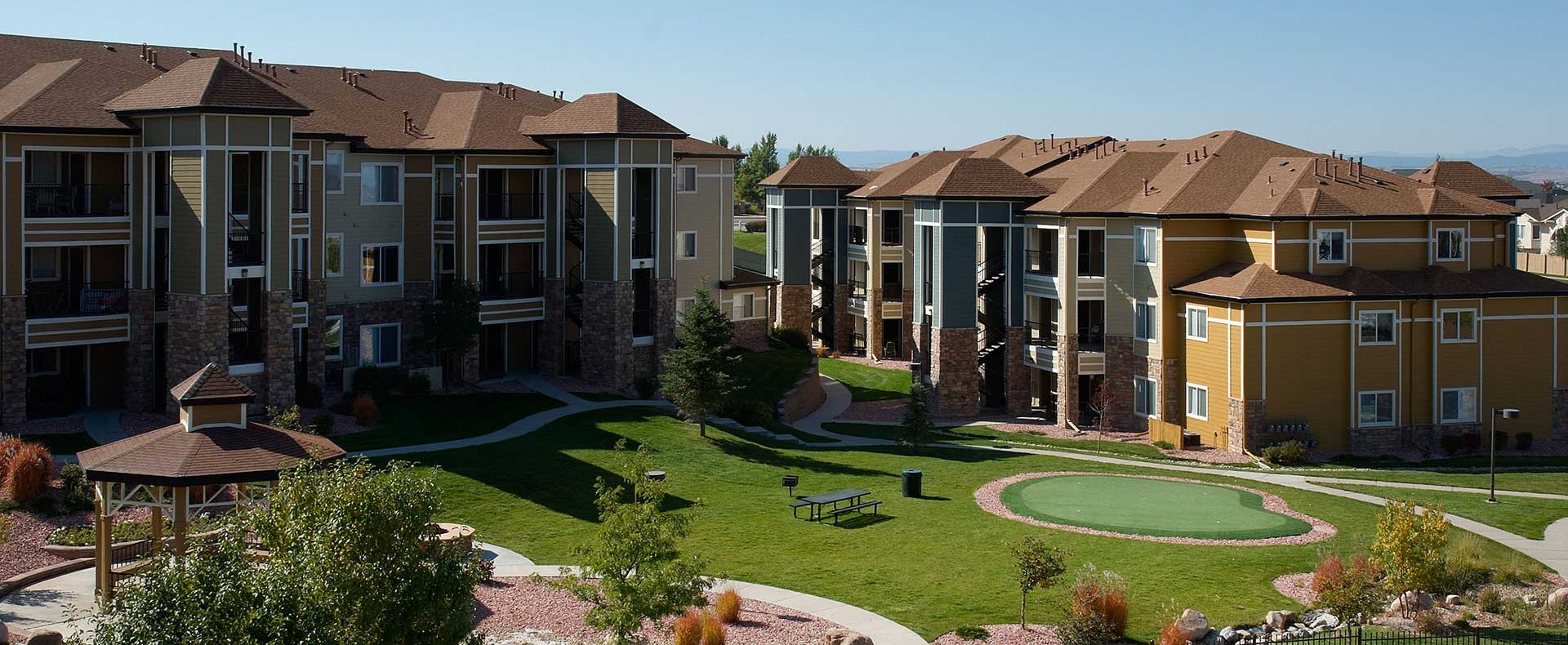Before you evaluate syndication deal opportunities, you first need to evaluate the actual syndication teams. Knowing how to pick a syndicator is a skill that every passive investor needs to hone. Good teams will usually have good deals, so if you are looking for opportunities, finding the team is the higher priority. You may have seen other articles on Actively Passive telling you how to find syndicators. This article will show you what needs to happen next – the interview.
I think it is best to talk with them on the phone. Not only does this help substantiate a substantive relationship with the sponsor (as the SEC requires on most syndication deals), but it also allows you to use your BS detector and look for red flags. Don’t worry too much if a syndicator doesn’t quite meet your standards—there are a lot out there and it’s a numbers game, so move on to the next one on your list.
I’m going to present these questions as if they were part of a script, and then I will comment on what types of answers you could look for. This is by no means a complete list but will get you started. The more of these calls you make, the more comfortable it will become, and these questions will roll off your tongue. Knowing how to pick a syndicator will become second nature… And it’s fun!
What is your focus area and type of multifamily property, and why?
At this point, you are trying to find out what kind of experience the operator has and where. You want to assess that the sponsor is somewhat specialized in their offerings, focusing on a geographic market, product type, and property size. For example, 100- to 200-unit garden apartment communities in class B neighborhoods in Scottsdale, AZ, near hospitals and shopping, because the sponsor truly understands their target customer. This is very granular, and that’s what you want. The syndicator might have 3 other profitable properties of this size in the area, demonstrating to you that they in fact have the experience needed to operate this type of property.
You want to see an underlying theme or similarities in the types of properties acquired and the typical deals they offer. You don’t necessarily want to invest with a syndicator who has vastly different property sizes in several states. I’m not saying that this is a red flag, but it sure makes things more difficult for the operator to manage such a portfolio, so there are exceptions. You ultimately want to feel like the syndicator is THE expert for the property types they operate and areas they operate in.
Tell me about your team and how your company is structured.
Again, experience, experience, experience. You want to determine if one or all of the members of the team have operated apartment communities before. Hopefully you will be told that different members of the team have specialties, like asset manager, acquisition director, construction manager, investor relations point person, data analyst, and the like. You also want to hear that if some of the team members are not specifically experienced in multifamily real estate, that they have transferable skills. An example might be a financial officer who has over 20-years’ experience managing multi-million-dollar budgets. Another might be a contractor who has joined the team to help with operational efficiencies during the value-add and renovation phase of each project. You are looking for well-defined and well-thought-out roles. You are also looking for a team that has been together for many years.
You also want to make sure that you are not working with a one-person shop. After all, multifamily real estate syndication is a team sport. There should be several capable people on the team. It protects you in the case of a death or incapacitation.
You need to know about the company as well. Is there even a company? Are all the team members employees or partners? Is it an LLC, partnership or some other type of organization? Is the company structured where the properties are located? Although this last one is a bonus, many of the successful syndicators I know operate properties in another state. But they focus on that one specific state.
Lastly, a note about the investor relations person: This is the person you will likely be interfacing with regularly. You want to make sure that you get along and that he/she is responsive to ALL your questions as quickly as possible. If they take a week to get back to you before you invest, what do you think will happen after you invest? Some syndicators will only be on their best behavior before funding.
What key people or consultants do you have outside of your organization?
You want to hear all about all the lawyers, tax planners, CPAs and third-party property management teams. The fact that there will be these people identified and in place says volumes about how well the syndication team has thought about these support roles.
You also want to hear that the sponsor has great working relationships with the broker community. A lot of deals happen through brokers, both on- and off-market opportunities. Ask about those opportunities. If the response is an off-market deal, this tells you that the syndicator has such a good relationship with the broker that he/she offered it to the syndicator before putting it on the market. Off-market deals have many advantages to the buyer, one of which is a lot fewer competing offers.
Who are your debt guarantors?
Most syndications rely on debt financing to acquire a property. About 60%-80% of a project’s acquisition cost is typically supplied by a loan from a bank or agency. Although many of these loans, especially greater than one or two million dollars, are non-recourse loans, someone has to have the net worth and liquidity to guarantee those loans. Ideally, several people on the syndication team will be doing this, but if there is only one, that is fine. Different financial institutions have different net worth and liquidity requirements.
The dilemma that you might encounter is that no one on the actual team is guaranteeing the loan. You have to be comfortable with the risk if someone is being brought into the team, in exchange for part ownership, only because he/she can guarantee the loan. Some people have a problem with this scenario, but in my mind, it is not necessarily itself a deal breaker.
Which deal of yours was the worst and how did it fail?
You are trying to determine the sponsor’s character as well as problem-solving abilities. Hopefully, there will not be any failures, but there should be lots of learning opportunities that the operator can point to. You are listening for their humility and candor. You want to assess if the syndicator put the interests of the investors ahead of his/her own. I know of a syndication deal that went sour, but the syndicator still paid his investors what was projected – out of his own pocket. Now that’s a responsible sponsor.
While on this question, it is probably prudent to ask if any capital calls had to be made (where the syndicator asked investors for more money during a deal and it wasn’t planned), and if any distributions have been missed. If so, why?
How many multifamily units do you currently operate and what is your portfolio value?
Some of the biggest syndicators have thousands of units across dozens of properties. Ideally, you want to learn that they have a few properties consisting of over 150-200 units. You also want to find out where these are as well as if they had others that have gone full cycle. If so, ask details about the profits after sale, and if they met or exceeded pro forma figures, as well as how it compared to other properties of theirs.
Other Questions
- What kind of market research do you do to support your acquisitions?
- How many units have you invested in as a limited partner?
- Have you gone through any recessions or market cycles?
- How much money have you raised from investors over all your offerings?
- Do you normally perform better than or worse than your pro forma?
- What unforeseen problems have you had to solve?
- What is your average vacancy at your properties?
- Do you ever try to cash out, or partially cash out investors midway through a hold?
- What return rates do you always shoot for?
- How many classes of investors do you have in your capital stack?
- How are your relationships with mortgage brokers or lenders?
- Have you ever been unable to close on an acquisition?
- Who puts up the money for due diligence and other pre-acquisition costs?
- If you are unable to raise funds through investors, do you have a plan B?
- Do you have any criminal activity on your record?
- Have you ever had a foreclosure or a bankruptcy?
That last one shouldn’t necessarily disqualify a sponsor, but it is good to know. A lot of people lost property and assets during the downturn on 2009-2011. If it was during this period, chances are that this was not the fault of the sponsor and taught him/her some valuable lessons that carry forward to the present day.
May I please get some references?
It may or may not be appropriate to ask this on the first call. After you have spoken to the syndicator on the phone, and if you are ready to move forward with them, your next step should be to ask for references. Most sponsors will have a small list of people you can call.
When reaching out to these other fellow investors, as about how well the syndicator communicates with them and how frequently, as well as how any bad news was delivered. Ask about the form of communication and how often they provide financials. Is tax reporting done on time and has there ever been a late Form K-1? Has the sponsor ever made a promise that they didn’t keep? Finally, ask if the investor would invest money with the sponsor again.
Final Thoughts on How to Pick a Syndicator
Knowledge is power. I hope this helped you organize your thoughts. If during your first contact, you forgot to ask a question or if something just hadn’t occurred to you at the time, you should follow up via email or another phone call with new questions. Syndicators are there to help you. They don’t win unless you do, so don’t be shy.
Helpful Link
The Hands-Off Investor, an Insider’s Guide to Investing in Passive Real Estate Syndications by Brian Burke


